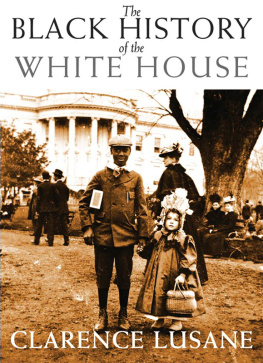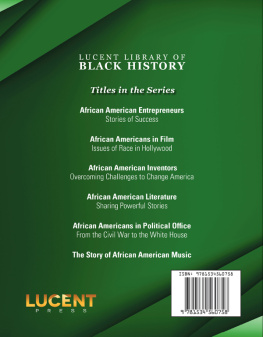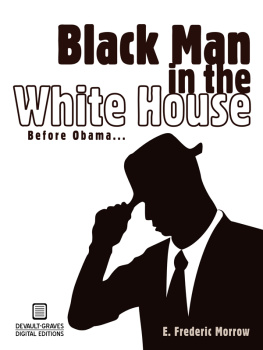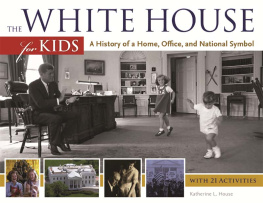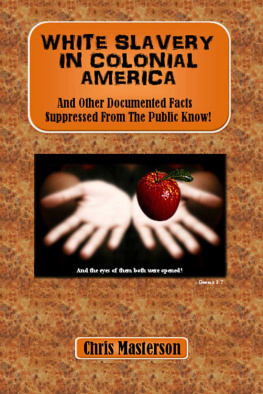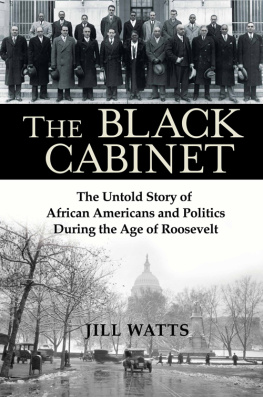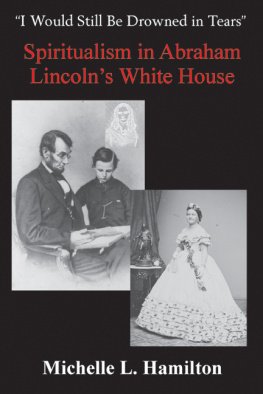Jonathan W. White is associate professor of American Studies at Christopher Newport University. He is the author of ten books and over one hundred articles, essays, and reviews on Lincoln and the Civil War. His writing has appeared in Smithsonian, Time, the New York Times, and the Washington Post. He lives in Newport News, Virginia.
M any friends and colleagues have made this book possible. I thank Christopher Newport Universitys Department of Leadership and American Studies, Provost David Doughty, and the faculty senate for support of my research through professional development funds and a Faculty Development Grant. David Salomon has generously provided me with research assistance each year through CNUs Summer Scholar program. CNUs Center for American Studies, co-directed by Nathan and Elizabeth Busch, has been an incredible place to work for the last decade and a staunch supporter of my scholarship. My Center for American Studies junior fellows, Taylor Bagwell, Hannah Broughton, Maggie Byers, Daniel Glenn, and Michael Sparks, did fantastic work digging up sources for me for this and other projects. Chloe Baker, Reagan Connelly, Kailey Ritchie, and Michael Sparks helped me proofread the page proofs. I also thank my American Studies students from our senior seminar in Spring 2019 for helping me think through the ideas in this book. Robert Colby, Jim Conroy, and Sean Scott all read the manuscript and offered helpful advice, for which I am grateful. My agent, Mary Evans, who I met through my friend Ron White, has been an ardent proponent of this project and helped me rethink the framing of the book. Kate Jenkins suggested the title. DeLisa Harris of Fisk University showed me the Baltimore Bible, which was an incredible experience. I thank Jon Sisk, Elaine McGarraugh, and the team at Rowman & Littlefield for carefully guiding this book to publication. Finally, I thank my family for their untiring support. My parents, Bill and Eileen White, inspired me to love both history and teaching. I wouldnt be a college professor today without their love and guidance. While writing this book I often thought back to when Lauren and I lived in Washington, DCthe times, before kids, we spent walking the city, near the White House or through Lincoln Park. I cherish every moment with her, Charlotte, and Clara, and appreciate their willingness to stop at historic sites on nearly every trip we take.
A misreading of Benjamin Quarless classic book The Negro in the Civil War (1953) has led some historians to erroneously conclude that J. Sella Martin, William C. Nell, Robert Morris, and William Wells Brown visited Lincoln. A myth has also arisen that Lincolns friend and barber William de Fleurville visited the White House, with some scholars stating that he made several visits to see his old friend in Washington, DC. This myth is based on a misreading of a touching letter that Fleurville sent to Lincoln in 1863.
An unpublished biography of Henry McNeal Turner claims that Lincoln called Turner to the White House after the minister wrote to him. To date, the editors of the Papers of Abraham Lincoln project have not located any correspondence between the two men. The biography contains a 266-word statement of what Turner allegedly said at the meeting, including that Frederick Douglass and myself were the first to call on you, and ask that the black man have the chance to fight for his country and freedom. The language attributed to Turner does not align with what we know of Lincolns other meetings with African Americans. Moreover, Douglass did not meet with Lincoln until August 1863, so he could not have personally urged Lincoln to arm black soldiers.
Curiously, another mythical meeting involving Frederick Douglass has also gained some currency. Pinckney Benton Stewart Pinchback had been recruiting black soldiers in Louisiana since 1862, but he was frustrated that he could not receive a commission to lead them. In September 1863, he resigned from the Army, telling Union General Nathaniel P. Banks that nearly all of the white officers in his regiment were Inimical to me, and I can foresee nothing but dissatisfaction and discontent which will make my position verry disagreable Indeed. In the spring of 1865, Pinchback decided to travel to Washington to seek a redress of his grievances from the president. Sadly, John Wilkes Booth reached Lincoln first, rendering Pinchbacks trip useless.
Over time, Pinchbacks story evolved. In the myth that developed, he participated in a heated meeting with Lincoln and Frederick Douglass. Pinchbacks biographer writes, Figures like P. B. S. Pinchback inspire legends, and one of them is that Pinchback did indeed visit Abraham Lincoln, in the company of none other than Frederick Douglass. According to the story, the two black men expressed dissatisfaction that the Emancipation Proclamation only freed slaves in areas under Confederate control. Lincoln turned to Douglass and said, Mr. Douglass, for the sake of your people, I wish you and I could sit in this chair [the presidency] together. In response, a visibly irritated Pinchback retorted, Excuse me, Mr. President, Ive got to go vomit. (According to the tale, Douglass and Pinchback had gotten drunk together the night before.) Pinchbacks biographer points out that such undocumented legends depict Pinchback as a scoundrel, adding, It is likely that Pinchback never did see Lincoln. In fact, the story is a complete fabrication. Douglass proudly described his three visits with Lincoln, and he never recounted anything like this in any of his speeches or autobiographical writings. Moreover, by the spring of 1865, no African American would have been complaining about the reach of the Emancipation Proclamation, as the Thirteenth Amendment had passed through Congress in January of that year.
Historian Michael Burlingame plausibly speculates that Lincoln may have met with Henry Highland Garnet in 1861. To date no concrete evidence for such a meeting has been located.
Abbreviations for frequently cited sources are in brackets.
PRIMARY SOURCES
Manuscripts
Haverford, PA
Haverford College, Quaker and Special Collections.
Julia Wilbur Diary (transcriptions by Alexandria Archaeology) [Wilbur Diary].
Washington, DC
Library of Congress, Manuscript Division.
Abraham Lincoln Papers [Lincoln Papers].
American Colonization Society Papers [ACS Papers].
National Archives and Records Administration [NARA].
Compiled Military Service Records, RG 94 (Records of the Office of the Adjutant General), Entry 519 (Records of the Record and Pension Office) [CMSR].
Records of the Office of the Secretary of the Interior Relating to the Suppression of the African Slave Trade and Negro Colonization, 18541872, National Archives microfilm M160.
Pension Records, RG 15 (Records of the Department of Veterans Affairs) [Pension].
Newspapers
New York Anglo-African [NYAA].
New York Times [NYT].
Philadelphia Christian Recorder [CR].
Washington, DC, Evening Star [ES].
Washington, DC, National Republican [NR].
Published Primary Sources
Basler, Roy P., ed. The Collected Works of Abraham Lincoln: Supplement, 18321865. Westport, CT: Greenwood Press, 1974.
Basler, Roy P. et al., eds. The Collected Works of Abraham Lincoln. 9 vols. New Brunswick, NJ: Rutgers University Press, 19531955 [CWL].
Beale, Howard K., ed. The Diary of Edward Bates, 1859-1866. Washington, DC: Government Printing Office, 1933.
Burlingame, Michael, ed. Inside the White House in War Times: Memoirs and Reports of Lincolns Secretary, William O. Stoddard


